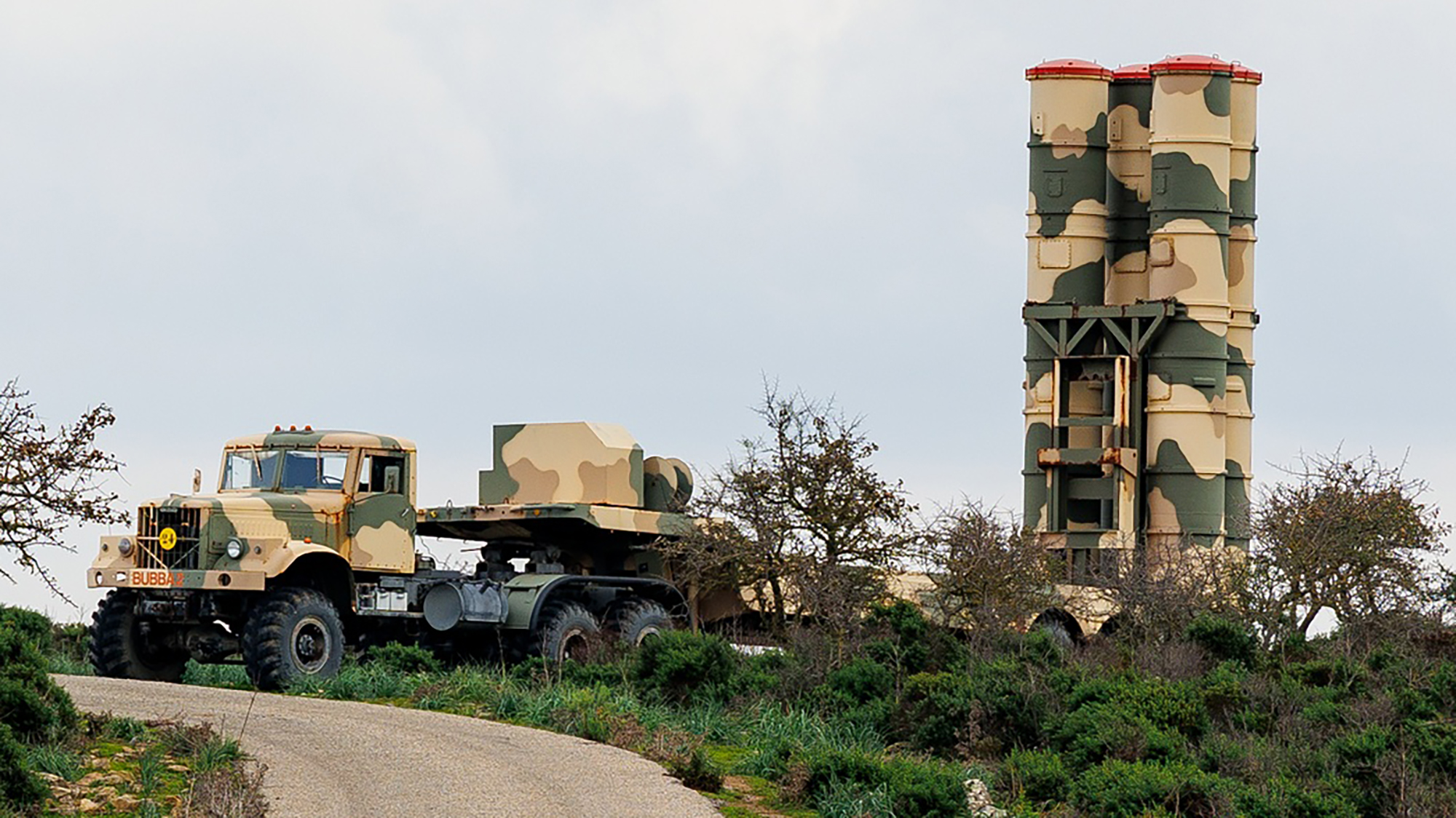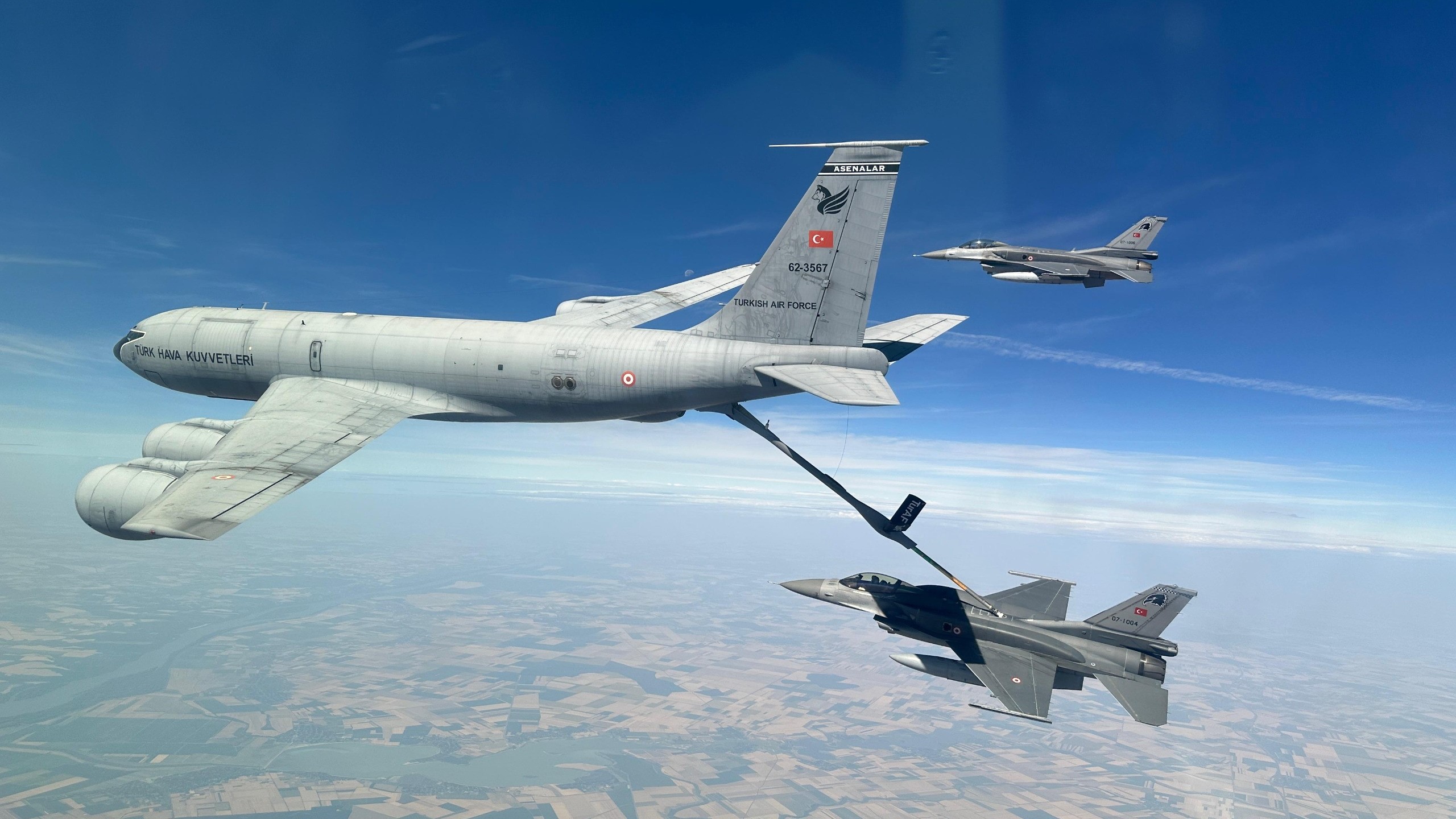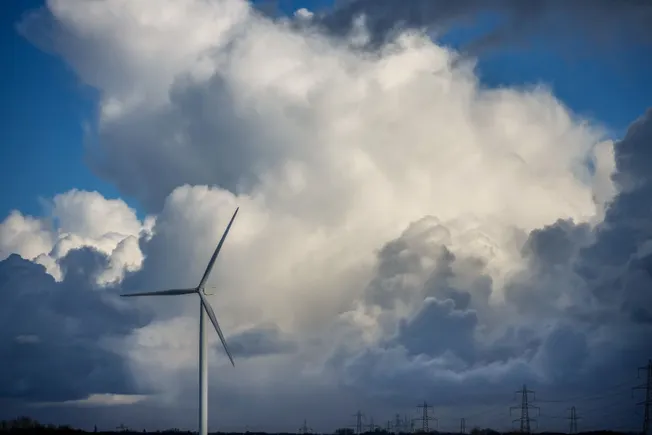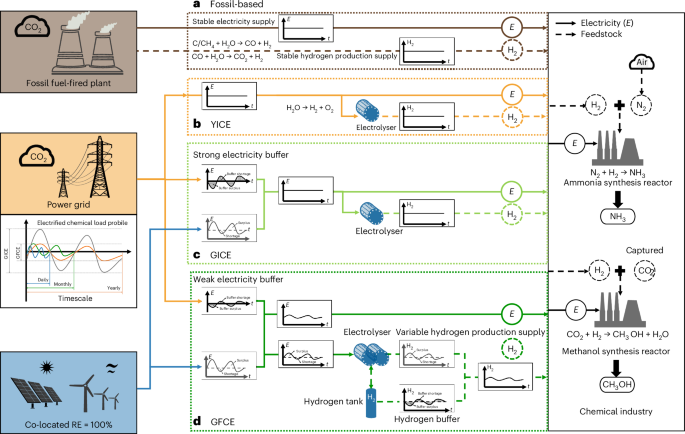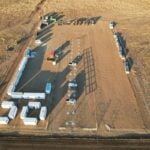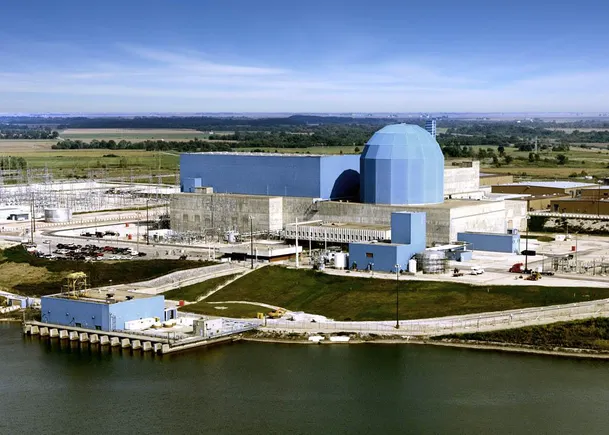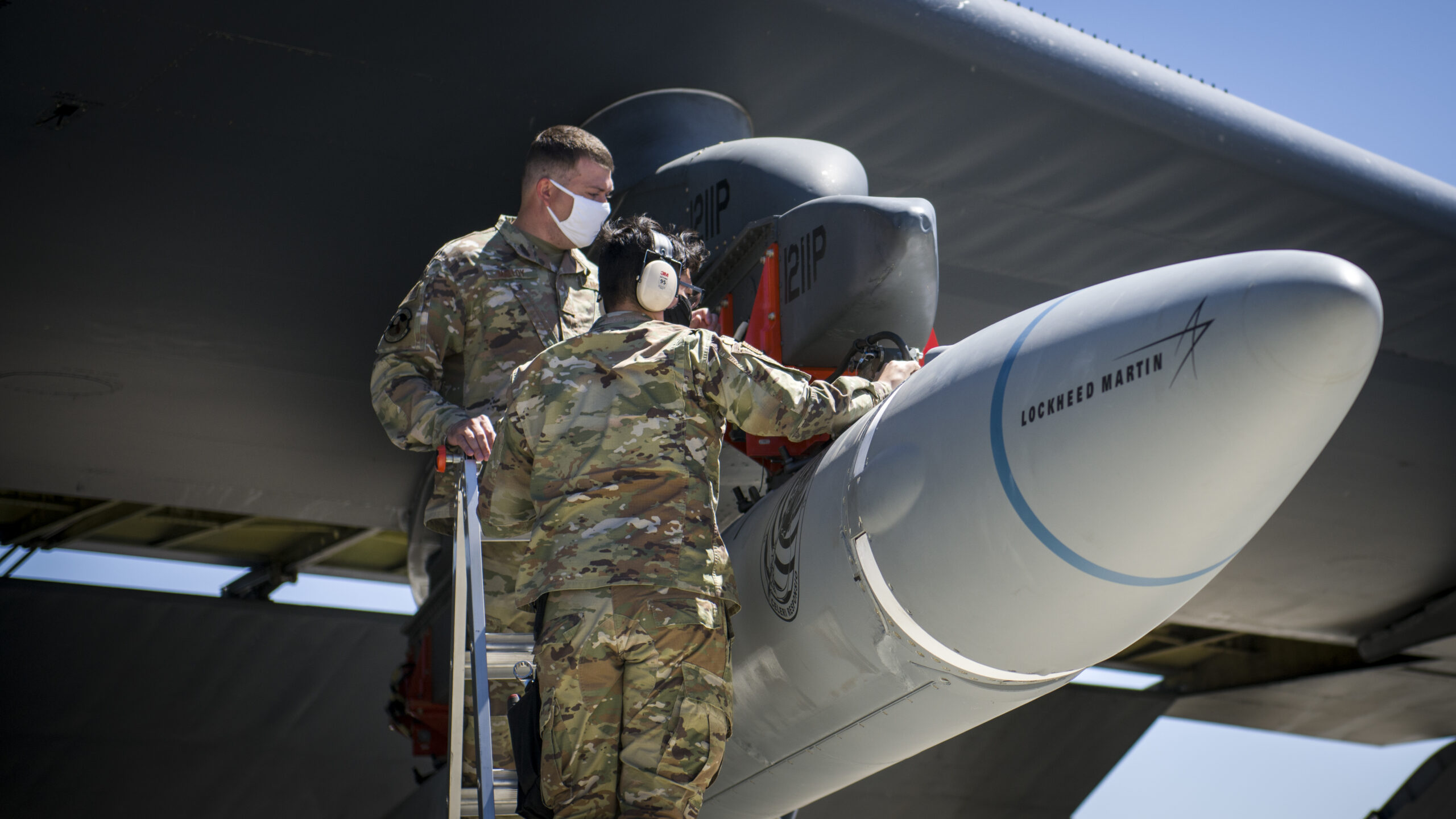Amid Trump, Musk blowup, canceling SpaceX contracts could cripple DoD launch program
Elon Musk’s SpaceX is already expected to conduct more than two dozen national security-related space launches over the next few years.


Tesla and SpaceX CEO Elon Musk, accompanied by U.S. President Donald Trump (R), and his son X Musk, speaks during an executive order signing in the Oval Office at the White House on February 11, 2025 in Washington, DC. (Photo by Andrew Harnik/Getty Images)
WASHINGTON — If President Donald Trump were to follow through on his threat today to cancel all government contracts with billionaire Elon Musk, it would likely derail Pentagon and Intelligence Community space operations, and specifically in the near term cripple the Space Force’s National Security Space Launch (NSSL) program, due to the US government’s reliance on SpaceX rockets.
Trump and Musk, formerly a close advisor, engaged in a bitter and escalating war of words this afternoon on social media following Musk’s sharp criticism on X of Trump’s giant budget reconciliation package self-dubbed the “Big, Beautiful Bill.”
“The easiest way to save money in our Budget, Billions and Billions of Dollars, is to terminate Elon’s Governmental Subsidies and Contracts. I was always surprised that Biden didn’t do it!” Trump posted on his own social media site in response to Musk’s criticisms and Musk’s suggestion he might consider backing the creation of a third political party.
Musk fired back, “Go ahead and make my day!” in a post on X, and followed up with another saying, “In light of the President’s statement about cancellation of my government contracts, @SpaceX will begin decommissioning its Dragon spacecraft immediately.”
It’s unclear, on both sides, how much of the social media spat is bluster destined to blow over — not to mention the myriad contractual and legal complexities that would be involved in actually disentangling the US government from business with Musk in a number of areas.
But any decommissioning of SpaceX’s Crew Dragon spacecraft would immediately be felt by NASA, which uses the craft to ferry astronauts to and from the International Space Station.
Beyond that, any potential freezing of contracts for SpaceX equipment and operations also would have far-reaching impact on the DoD and IC. NSSL is the primary acquisition program for space launches by the Space Force and IC, namely the National Reconnaissance Office (NRO) that builds the nation’s spy satellites. And at the moment, SpaceX’s Falcon series are the Space Force’s go-to rockets for putting the most critical payloads into orbit.
Killing SpaceX’s DoD contracts wouldn’t quite ground the Space Force, but it likely would significantly slow things down. Back in 2020, the Space Force contracted SpaceX and the Lockheed Martin-Boeing joint venture United Launch Alliance (ULA) as the only two providers able to compete for NSSL missions under the Phase 2 program, covering launches from fiscal year 2022 to 2027.
For the earlier missions in that time frame, ULA was offering its Delta IV and Atlas 5 for launches of medium- and heavy-lift missions, but for later years the company intended to use its new Vulcan rocket — which unlike the Delta and Atlas is using US-made engines rather than Russian ones banned by Congress as of the end of 2022.
However, ULA has had years of setbacks with Vulcan’s development. The rocket was technically certified by the Space Force for NSSL launches only in March. However, a senior Space Force officer on May 14 told the House Armed Services Committee that the company still has “open work” to finish before actually taking on NSSL missions.
“Risk reduction plans have been agreed to and signed between the Space Force and ULA to reduce known risks to flyable ‘Low-Medium’ prior to the first NSSL Vulcan launch,” said Maj. Gen. Stephen Purdy, acting assistant secretary of the Air Force for Space Acquisition and Integration.
The first Vulcan mission is USSF-106, slated to go up in July.
The Space Force recently switched two earlier planned missions to launch new GPS satellites from Vulcan to SpaceX’s Falcon 9 to help remediate a backlog caused by the delay in getting Vulcan certified. The latest of the two, the launch of GPS III Space Vehicle-08, successfully lifted off on May 30 with a record turn-around time of only three months.
The Space Force further has issued contracts for critical launches under the follow-on NSSL Phase 3 Lane 2 program, for launches between fiscal 2027 and 2032, to ULA, SpaceX and newcomer Blue Origin with its New Glenn rocket.
Under the new awards, SpaceX is “anticipated” to undertake 28 NSSL Phase 3 Lane 2 missions, about 60 percent of the launches contracted from FY25-FY29, for a sum of around $5.9 billion, and ULA 19 missions, about 40 percent, Space Systems Command (SSC) announced April 4. Blue Origin, “is projected to be awarded seven Phase 3 Lane 2 missions starting in Order Year 2,” of FY26, SSC added.
The future NSSL program also envisions that a number of small- and medium-launch providers will compete for less critical missions going to lower orbits, under the Lane 1 acquisition track. Lane 1 launch providers face fewer requirements to be certified by the Space Force than those qualified to launch under NSSL Phase 3 Lane 2. So far, the Space Force has given SpaceX, ULA , Blue Origin, Rocket Lab and Stoke Space the thumbs up to participate.
But the bottom line is that SpaceX has been, and appeared up to now to be for the near future, the dominant US space launch provider. The company was responsible for 98 of the total 109 US military, civil and commercial launches in 2023 and 138 out of 145 US launches in 2024, according to Jonathan McDowell, an astrophysicist with the Harvard–Smithsonian Center for Astrophysics who maintains the world’s largest open-source database on space launches.
That’s before evening getting into the potentially thornier issue of military use of SpaceX’s Starlink satellite communications and the reported use of Starshield buses for the NRO’s new constellation of hundreds of satellites in low Earth orbit.










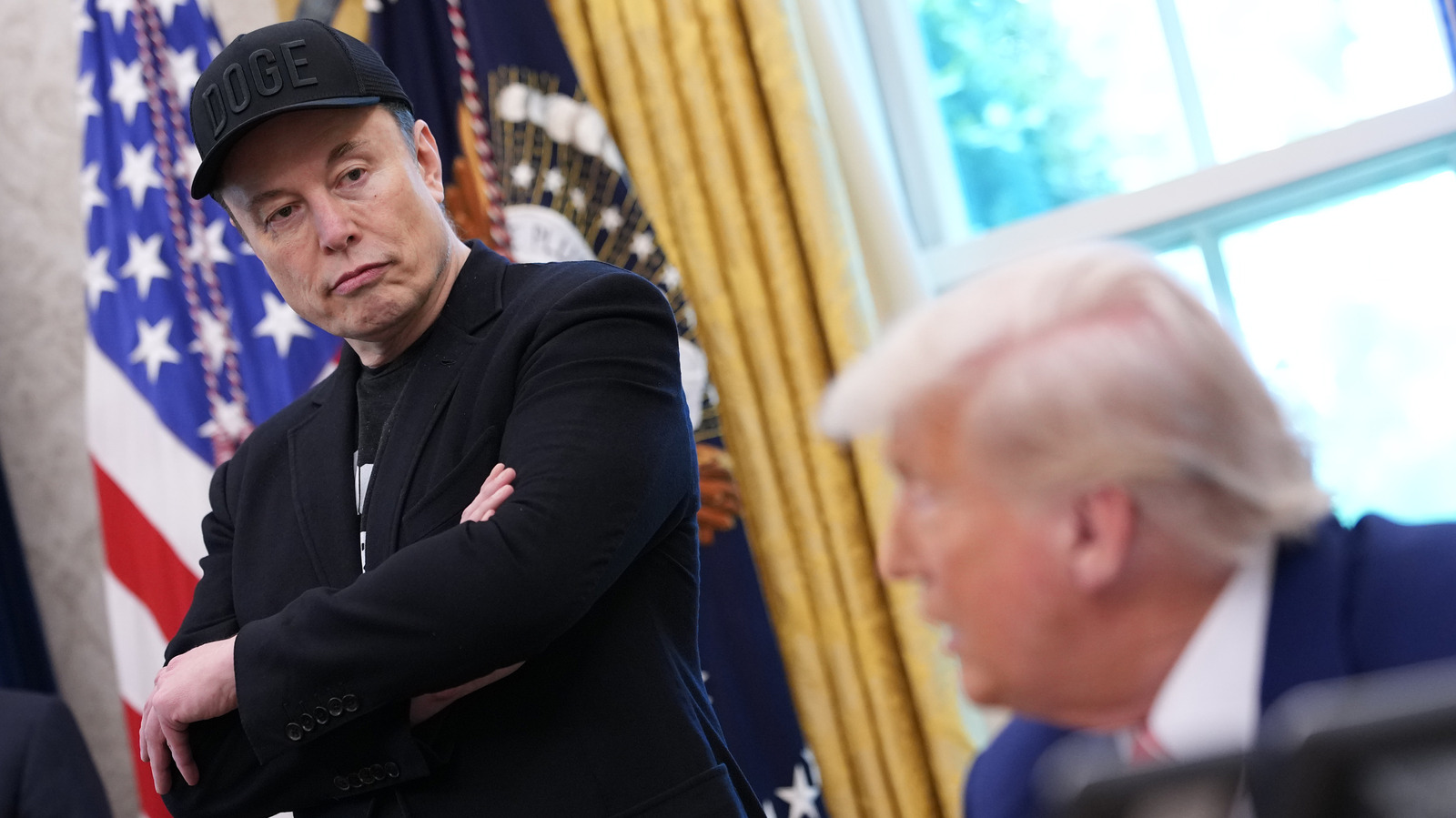













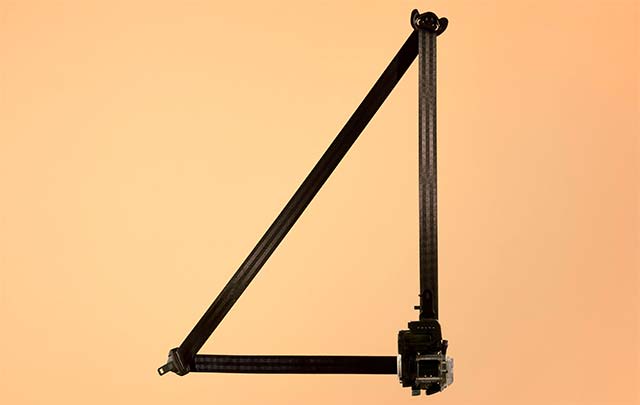







































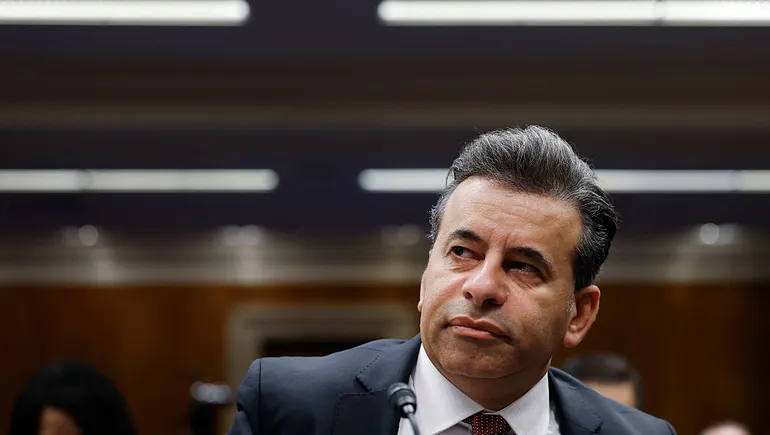




















![The F-35’s future: Can the fifth-gen fighter withstand political, technological headwinds? [Video]](https://breakingdefense.com/wp-content/uploads/sites/3/2024/04/240401_f35_clouds_8270083-scaled-e1711999276822.jpg?#)















